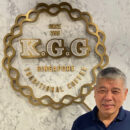
Moving Talents Across Borders
The pandemic has changed the norms of working for businesses around the world. More companies now offer their employees different modes of working; from traditional in-office work to fully remote arrangements and everything in-between.
Yet, with COVID-19 retreating in most parts of the world and borders reopening, Singapore-based firms are starting to relocate their staff to international offices. The implementation of “location-free” work arrangements has also driven increased relocation traffic.

Working professionals today desire to set up offices anywhere in the world, or enjoy the flexibility to work from other locations besides their home countries for a specific period. Reflecting these trends, Cartus, a leading corporate relocation company, has seen relocation numbers and activities increase in the last six months.
“While COVID-19 and subsequent restrictions have challenged the movement of people and trade across borders, we are seeing a return to normalcy as most countries move into the ‘living with COVID’ phase,” said Alzone Ang, Vice President, Global Talent Mobility, at Cartus.
He added: “Organisations which have seen their revenue and business priorities impacted over the past two years are looking to capitalise on new opportunities and new growth markets.”
As Singapore increasingly becomes the hub of choice for more multinationals, there is also an increase in the exchange of global talents between the city-state and other countries. “This talent mobility traffic supports those multinationals through the building of skills and knowledge for their employees, enhancing the international make-up of their workforce which is critical for embedding diversity, equity, and inclusion values,” explained Mr Ang.
Cross-border challenges
However, as relocation involves the movement of people and families across borders, and the need to cope with different cultures, working and living norms, and legal requirements, it can become a highly complex and stressful affair.
One common challenge is compliance, or the cost of non-compliance, as more countries tighten their regulatory environment for businesses. Remote workers and a distributed workforce can expose companies to potential risks, as employees working from another state or country can lead to unintended tax, payroll, or immigration obligations.
“Even if you do not have an entity in a specific country, by virtue of your employee working in that country beyond a certain number of days, you might have established a permanent establishment in that location, which generally leads to tax liability in that jurisdiction,” said Mr Ang.
A lack of availability in rental housing, serviced apartments and hotels in some leading destinations is also raising the cost of relocation. This has in turn led to delays in the settling in of transferred employees in areas such as local registration, bank account set-up and driver’s licence application. Meanwhile, supply chain disruptions and port closures are impacting freight rates, air rates and the transit time of household goods to relocated employees.
Adopting best practices
As Cartus manages more than 100,000 corporate moves a year –for many Fortune 50 companies – the firm is in a good position to share best practices when it comes to relocations.
Cartus provides a broad range of services to assist its clients and their employees —from selling a home and shipping household goods to settling into new communities around the world. It also specialises in cross-cultural and language training, international assignment compensation, and policy development and talent management.
One key practice that Cartus advocates is relocation planning, especially at the start of the process when a line manager first speaks to their employee about relocating.
“From experience, the employee’s sentiments during this phase are often a mixture of uncertainty and excitement. We have seen line managers focus on selling the new job and the opportunity without setting realistic expectations about critical relocation events. This includes the timeline for the move, an overview of the next steps, and the support provided by the company,” said Mr Ang.
Choosing the right relocation policy is also key. Ideally, a company should adopt policy benefits that meets both the needs of the company and those of individual employees.
“Increasingly, we have seen companies adopting a flexible approach in designing their relocation policies. Those policies enable freedom within a framework when it comes to optimising relocation spend resulting in cost savings, and an enhanced employee experience during the move.”
As global business picks up pace again after two years of disruption, companies would do well to ensure they have the proper processes in place to ensure the seamless movement of their staff around the world as they seek new opportunities for growth.


















